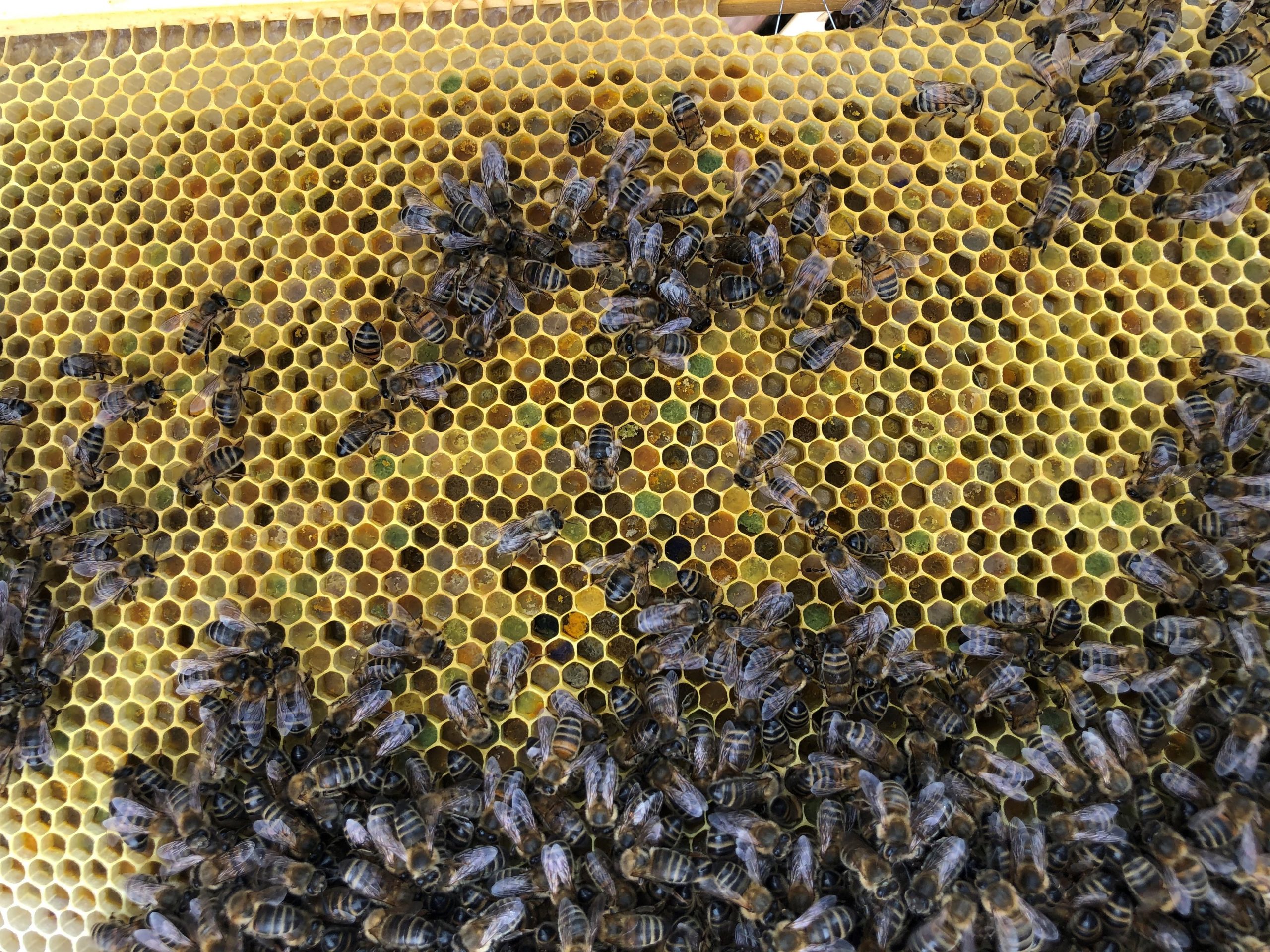
Spring Caution and buying nucs!
Beekeepers are generally positive and optimistic and with the lengthening of the days the enthusiasm to look, into the hive is tangible. However, caution is the watch word. Whether a beginner or experienced, be mindful of the bees’ needs first and curb that excitement to be opening the hive. It is a critical time for the bees as winter slowly loses its grip and on warm days pollen can be seen coming into the hive. This is usually a good sign that the queen is breeding and the colony is beginning to expand. This is not a guarantee that the queen is laying fertile eggs though. She may be laying drone eggs due to missed mating and this brood needs pollen too. If you have varroa floor boards the size of the cluster by can be estimated by looking at the insert. Usually there is a ring of cappings on the board similar to the cluster’s diameter.
On a warm day with no cold wind check for food supplies. The bees are now consuming food rapidly to rear brood and to maintain brood temperatures. A simple check is by hefting gently to appreciate the hive weight and if in doubt feed a block of fondant above the crown board. Towards the end of March or early April liquid feed is a good alternative but only if warm weather is current. The colonies that have wintered well and with plenty of bees can be supered by the end of the month. This extra space enables the hatching bees to cluster without over-crowding the brood nest thus helping to alleviate pressure to issue an early swarm. If the bees are supered too late then the swarming impulse is very difficult to suppress. It is important that the bees have food available now and in a good Spring early nectar rapidly enables colony expansion and even an excess of honey. The early super enables surplus to be stored and as it is immediately above the brood nest the nectar removes the need to collect water for honey dilution. Ripe honey needs to be diluted for use, so water is necessary in early spring. However, if there is no flow on then artificial support is necessary. If you are unsure when to go for liquid feed, go with fondant as the bees can use this feed all year round. Liquid feed does have the advantage of stimulating brood development.
A simple water fountain can be made by putting pebbles into a shallow dish and adding water to just below the level of the pebbles. This ensures that the bees don’t drown.
For those who are waiting for their nucleus colonies to arrive this year, there is guidance from BBKA. The recommendation is that five frame nucs should have a minimum of three frames of brood and the rest food with a current queen, mated and laying fertile worker brood. Ideally the breeder should mark the queen and I prefer also to clip her. I would always recommend you have an experienced beekeeper with a beginner to assess what you are buying. Weak or below standard stingy bees are not desirable. When the nuc arrives, or when you collect it place it on the site where you want your hive to be allowing the bees to fly for a day or two. Then on a warm day remove the nuc to one side placing the hive on its permanent site. Transfer the bees across and feed with a contact feeder to assist the bees to draw out foundation. It is important to keep the frames in the same order that they came in in the nuc. I would suggest that two or three frames of foundation are given initially with a dummy board adding the rest when the bees are expanding. Be sure to do all manipulations fully protected as stings hurt! Please buy bees locally and avoid importing bees at all costs. Besides the disease risk imported queens produce drones who happily compete for mating rights with local bees and these different genetics often lead to aggression in F2 generations. These imports disrupt local breeders from improving their bees due to hybridization. Remember to keep records of what you are doing and plan what you are going to do next. My mantra is always to have a reason for opening the hive and work in tandem with the weather and the bees!
Enjoy the new season and hopefully some honey.
David.
